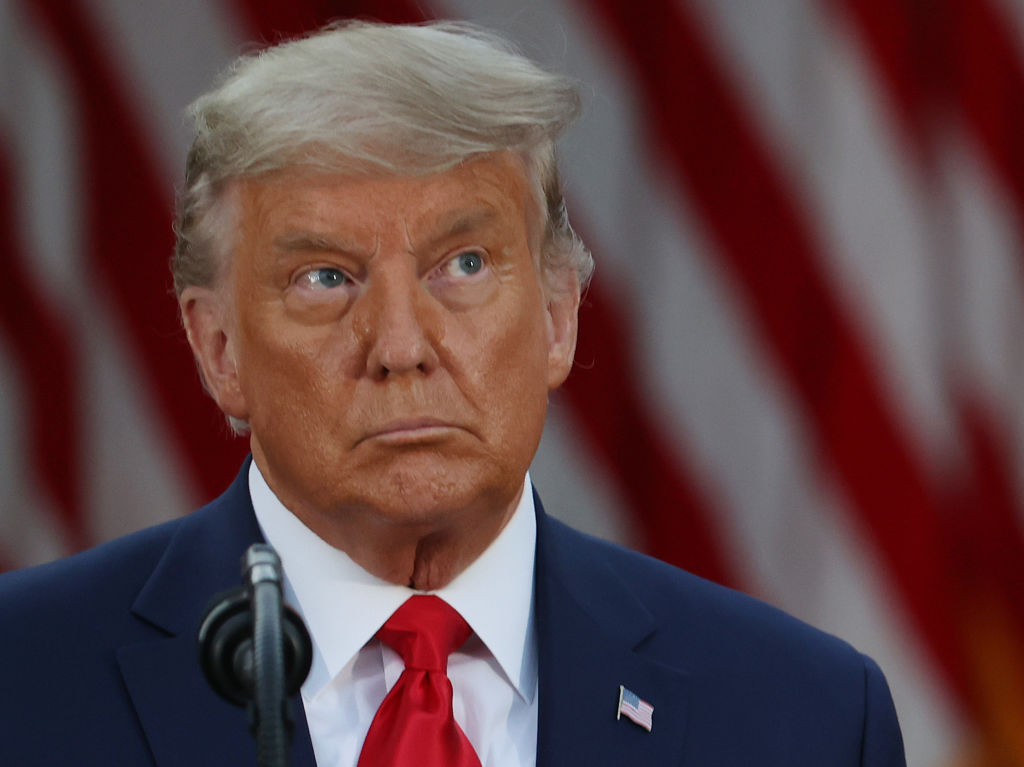
This article is part of the The DC Brief, TIME’s politics newsletter. Sign up here to get stories like this sent to your inbox every weekday.
During his failed campaign to win another four years in office, President Donald Trump repeatedly used the power of his office to boost his chances, employing the White House as a campaign backdrop, having his Secretary of State give a campaign speech during an official diplomatic trip, and spreading baseless claims about voting fraud from behind the presidential seal.
Now he’s using his office to try to reverse his loss.
Trump invited a delegation of Michigan Republican lawmakers to meet with him at the White House on Friday, as that state is on the verge of formally certifying that President-elect Joe Biden won more votes. Judges have tossed out Trump’s claims of widespread voter fraud in Michigan and other states, so now Trump appears to be trying to use raw political power and influence in a Hail Mary attempt to convince sitting state lawmakers to disenfranchise millions of Michigan voters. The White House meeting follows a Tuesday night phone call Trump reportedly made to a Republican member of the board of canvassers in Michigan’s Wayne County, which includes Detroit, after the board voted to certify the vote tally.
Hanging over Friday’s meetings is more than the power of the office. Trump is also building a new fundraising juggernaut as he fights the election results. Trump’s massive campaign fundraising list is sending appeals to donors nominally to help his legal defense, but a large portion of the funds is going to a new political action committee called Save America that Trump can use to steer donations to the campaigns of politicians he favors.
After repeated failures to show widespread election fraud in court, Trump’s legal team has acknowledged that its current strategy is to delay certification of votes in key states in order to open the door for GOP-held state legislatures to intervene and send a raft of pro-Trump delegates to the electoral college on Dec. 14, rather than delegates who represent how people voted. That strategy is exceptionally unlikely to work and would mean reversing the intention of millions of voters. People close to Trump believe he is putting up a robust fight as a way to energize his supporters so they will come with him as television viewers after he leaves office and bolster his political sway as a kingmaker in the Republican party.
But he is already doing a lot of damage to the democratic process along the way, and seeding unfounded distrust in the election results among core parts of his base that could persist for years. Trump added to that damage on Tuesday when he fired his top cybersecurity official responsible for securing the election, Chris Krebs, who had said his team of federal government experts had not seen any signs of electronic votes being changed.
When President Teddy Roosevelt called the presidency a “bully pulpit,” he meant it was a powerful perch to advocate for a policy agenda. But Trump has taken the muscular use of office in a different direction, using it to literally bully fellow Republicans into backing his personal political ambitions and go along with his false claims that the election was stolen from him in a broad and unproven conspiracy that has been widely debunked and repeatedly rejected in court. “He is simply trying to steal it through the levers of power,” says Heather Cox Richardson, a historian at Boston College. “This is unprecedented.”
Not since 1876 has a candidate so flagrantly used political power to try to change the outcome of a vote after Election Day. That was during Reconstruction, when Republicans grabbed the presidency for Ohio governor Rutherford Hayes with brute political force by pressing Congress to steer the result in Hayes’ favor.
But there is still one key difference between now and then: in 1876, the vote margins were legitimately unclear, whereas in 2020, Biden has clear winning margins in the states Trump is disputing. Since then, states have voted in reforms to the electoral college system designed to prevent a politician from exerting personal influence over the democratic process. As the country watches, Trump is testing those reforms that were designed to ensure the will of the voters is honored.
Make sense of what matters in Washington. Sign up for the daily D.C. Brief newsletter.
More Must-Reads from TIME
- Introducing the 2024 TIME100 Next
- The Reinvention of J.D. Vance
- How to Survive Election Season Without Losing Your Mind
- Welcome to the Golden Age of Scams
- Did the Pandemic Break Our Brains?
- The Many Lives of Jack Antonoff
- 33 True Crime Documentaries That Shaped the Genre
- Why Gut Health Issues Are More Common in Women
Contact us at letters@time.com